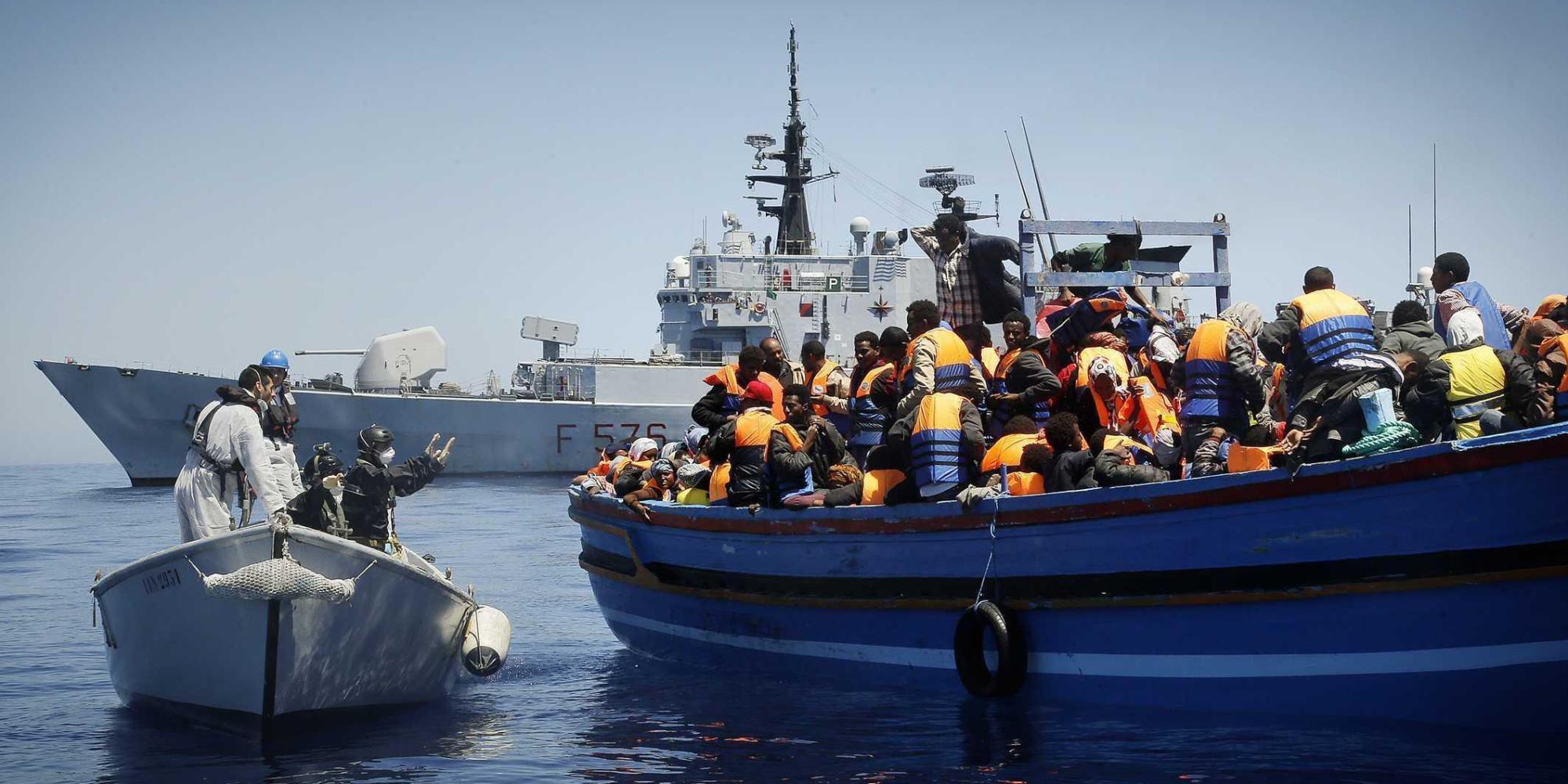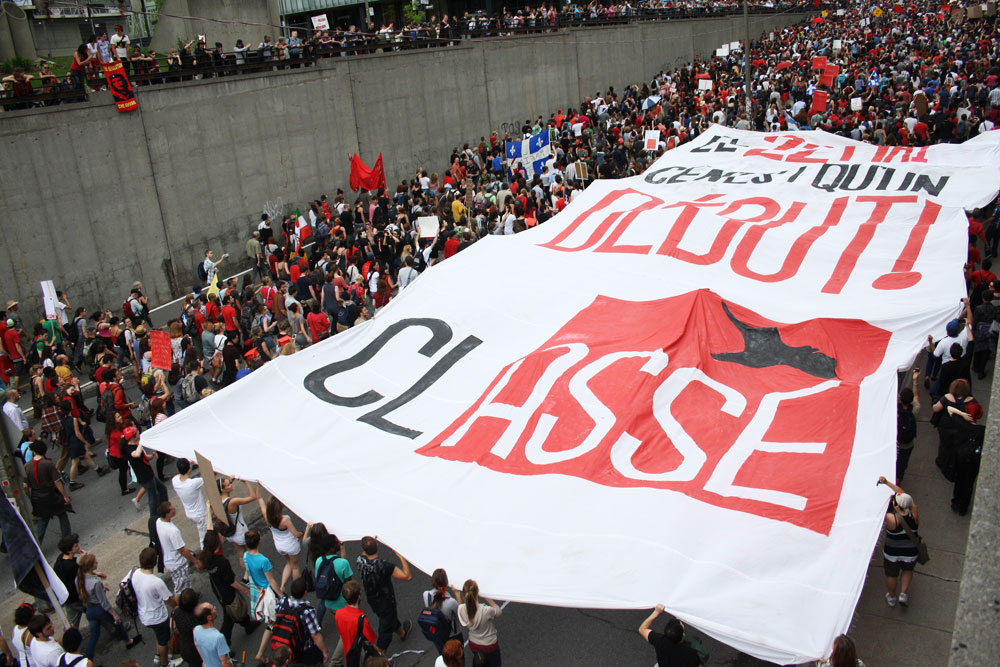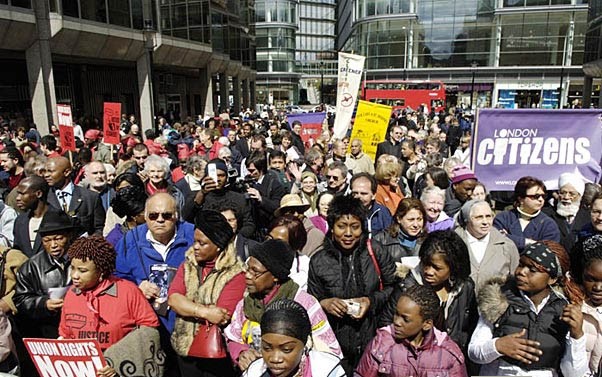In or out of the EU, we will still be in Britain come tomorrow
By Plan C Birmingham
We recently posted the base text of Nationalismus ist keine Alternative, a German campaign against the ‘Alternative for Deutschland’ – the German equivalent of UKIP. At this time, the politics of the centre is crumbling in the US. Over the channel, the far right are on the rise whilst the left scramble to respond to a rising tide of islamaphobic, anti-migrant and anti-Semitic rhetoric. As of yet, there is no generalizable social project of the left to counter this.
The current situation is a crisis of capitalism which is experienced by white Westerners as an attack on their lives. In response, a battle ensues over what makes values ‘British’. We are presented with two alternatives: a return to the social democratic welfare state, or an impossible conservative form of British independence from the world. Both these visions of the future take pride in the British nation and promise prosperity for Britain’s inhabitants. However, this is a false promise which is only bound to add more fuel to the fire and build up tensions.
The idea of ‘Britain First’ is embedded in British politics. Even for a moderate Briton, migrants are being rude to jump the queue, but we should accept the necessity of the queue because, after all, we are British. Quality of life, oppression and freedom to move are all influenced by nationality. The idea that either you or a migrant must have ‘your benefits’ is a rat race endorsed by the Nation. The Nation silos us off from each other while the media makes terror of the spectre of migrants (of whom we really only see a trickle) and the EU shields those who are always at the front of the queue in favour of austerity and colonial interventions which contributed and continue to force people to leave their homes in Africa in the Middle East in the first place. With gritted teeth and pinched noses to ward off the smell of shit, people will vote one way or another in a referendum where both choices are presented to us by elites. We need a response, practical actions of solidarity and resistance that create an alternative to the nation – an alternative where everyone is first.
The clamour around the EU referendum has demonstrated that the problem is not just the growth of fascist groups. The problem of violence inspired by racism is much broader than that. For example, we have seen how even the main parties have been unable to stay internally united on the question of immigration. The fact that the whole campaign has been reduced to a question of economic and legal sovereignty and immigration indicates how far politicians and the media are willing to go to strengthen their power. Because of this, it is necessary but not sufficient to mount an anti-fascist fightback in response to the present conditions. A broad-based initiative and discourse against nationalism is needed because things have definitely taken a turn for the worse.
History demonstrates the impossibility of a state-led solution to these issues. Britain and Europe have built walls around themselves. The West remains a fortress which conveniently closes itself off from global concerns despite benefiting enormously from its dominance in the world market. Society remains the embodiment of racist values originating in colonialism and persisting as imperialism to this day. British politicians opportunistically exploit demoralisation and declining spirits even though their government’s policies have made Britons worse off at home but better off internationally. The inability of the state to legitimise its actions in this way is no doubt a result of the fact that it is difficult for anyone to distinguish between the relative material benefits that racism brings to the white population from the absolute growth of finance worldwide. Even a left wing government would no doubt struggle to defend progressive policies on the grounds that domestic sacrifices result in an international payoff.
More often than not, these projects have degenerated into national socialism rather than genuine global solidarity. Instead, globalisation has occurred on the basis of private property and growing inequality: in one word, capitalism. In the guise of globalisation, supporters of capitalism have downplayed the differences that exist between people, and painted them as equal members of a single global village. For this reason, a vote to leave the EU can be interpreted as an attempt to resist this kind of patronising politics, and therefore also to resist capitalism.
But anti-capitalism can take many forms. In this case, the idea of integration on a national or European basis has collapsed, and resistance against it is moving beyond electoralism towards direct action. As the events of recent days have shown, this direct action is violent and is prepared to use death as a final solution to the problem of capitalism. But we don’t want people to feel as though they should get involved in an anti-nationalist initiative because they are scared. Though we too are afraid, we believe that we need a fight that goes beyond the creation of jobs, the defence of the international prestige of the NHS, or the strength of the British Pound. All these things have been shaped by workers’ struggle in Britain, but in turn they have shaped the lives of these workers in reactionary ways as well.
As our comrades in the rest of Europe know well, “the discourse on the financial and economic crisis, and its effects on people’s lives, has almost completely disappeared from media and politics and has been replaced by a new crisis… with thousands of refugees shaking up Europe’s ‘safety zone’ by overcoming its militarized borders and – for a moment – making their racist regulations inapplicable” [1]. As a phenomenon that highlights the possibility of a borderless world, the crisis of borders is instead experienced as the plight of the Europeans, even though “the same authoritarian and neoliberal management, that was responsible for millions of Greeks being excluded from their health care system, is now erecting barbed wire fences all over Europe” [2]. We need to be militant in resisting fascists where they gather but any campaign needs to go beyond challenging these outlying manifestations and into the very fabric of the prejudice that makes up the British identity.
[1] No Borders! a call from Beyond Europe
[2] Ibid.



